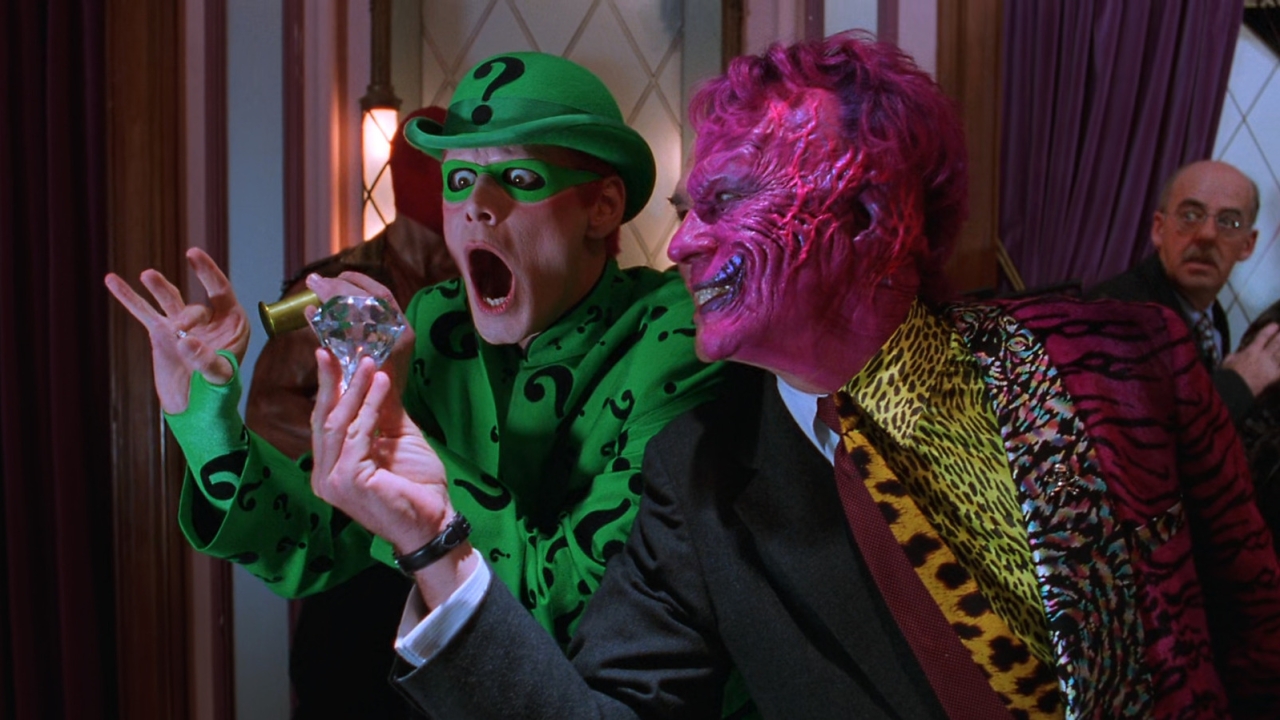The Moral Ambiguity of Ozymandias in Watchmen: A Villain with Noble Intentions?
News - 13 December 2023
 Recently, there was a discussion on FilmTotaal regarding the character of Erik Killmonger in the first Black Panther film, suggesting that he may not have been a villain but rather a character who had valid points. This idea can also be applied, to some extent, to Ozymandias in the film adaptation of Watchmen directed by Zack Snyder in 2009.nnWatchmen takes place in an alternate 1985 where superheroes coexist with regular humans, albeit in a world where they have been outlawed by the American government.
Recently, there was a discussion on FilmTotaal regarding the character of Erik Killmonger in the first Black Panther film, suggesting that he may not have been a villain but rather a character who had valid points. This idea can also be applied, to some extent, to Ozymandias in the film adaptation of Watchmen directed by Zack Snyder in 2009.nnWatchmen takes place in an alternate 1985 where superheroes coexist with regular humans, albeit in a world where they have been outlawed by the American government.What was once seen as heroic and admirable is now viewed as illegal and forbidden. The story kicks off with the murder of a well-known superhero during the tense times of the Cold War, prompting another retired superhero, Rorschach, to investigate the incident. Despite facing challenges, he receives assistance from fellow heroes such as Nite Owl and Silk Spectre.
nnAs the plot unfolds, it is eventually revealed that Adrian Veidt, also known as Ozymandias, is the mastermind behind the tragic events that transpire. While his actions may have resulted in the loss of countless lives, including the manipulation of Doctor Manhattan into seemingly attacking New York City, the other heroes grapple with the moral complexity of his actions. Ozymandias orchestrates a scenario where the world unites against a common enemy, preventing future conflicts and fostering global unity.
nnThe central dilemma in Watchmen revolves around the conflict between truth and peace. Doctor Manhattan, persuaded by Ozymandias' argument for world peace at any cost, aligns himself with the plan and ultimately eliminates Rorschach, who adamantly seeks to reveal the truth to the world. The sacrifice of truth for the greater good of peace is a theme that resonates throughout the film, culminating in a poignant moment where Rorschach's journal falls into the hands of a journalist, hinting at the inevitable disclosure of Ozymandias' deceit.
nnWhile Ozymandias' methods are extreme and morally questionable, the underlying motivation for his actions is rooted in a desire for a harmonious world free from the ravages of war. In a similar vein to Erik Killmonger's motivations in Black Panther, Ozymandias' character challenges viewers to reassess traditional notions of heroism and villainy. The complexity of his character lies in the moral ambiguity of his choices and the grey areas that blur the lines between right and wrong.
nnIn analyzing Ozymandias' character arc, it becomes evident that his actions, while morally reprehensible, stem from a genuine belief in the greater good. By sacrificing individual lives for the collective welfare of humanity, he embodies the age-old philosophical dilemma of utilitarianism - the idea that the ends justify the means. This ethical quandary forces viewers to confront uncomfortable truths about the sacrifices required for the attainment of peace and unity on a global scale.
nnFurthermore, Ozymandias' character serves as a cautionary tale about the dangers of unchecked power and the moral compromises that accompany the pursuit of noble ideals. His willingness to manipulate the truth and orchestrate mass deception underscores the ethical complexities inherent in the superhero genre, challenging the notion of black-and-white morality prevalent in traditional narratives.nnUltimately, the character of Ozymandias in Watchmen stands as a compelling example of a villain whose actions are driven by a twisted sense of altruism.
While his methods may be questionable and his actions unforgivable, his underlying motives compel audiences to grapple with the inherent contradictions of heroism and villainy. In a world where moral absolutes are rare and shades of grey abound, Ozymandias emerges as a morally ambiguous figure whose legacy raises profound questions about the nature of power, sacrifice, and the pursuit of a peaceful world.











